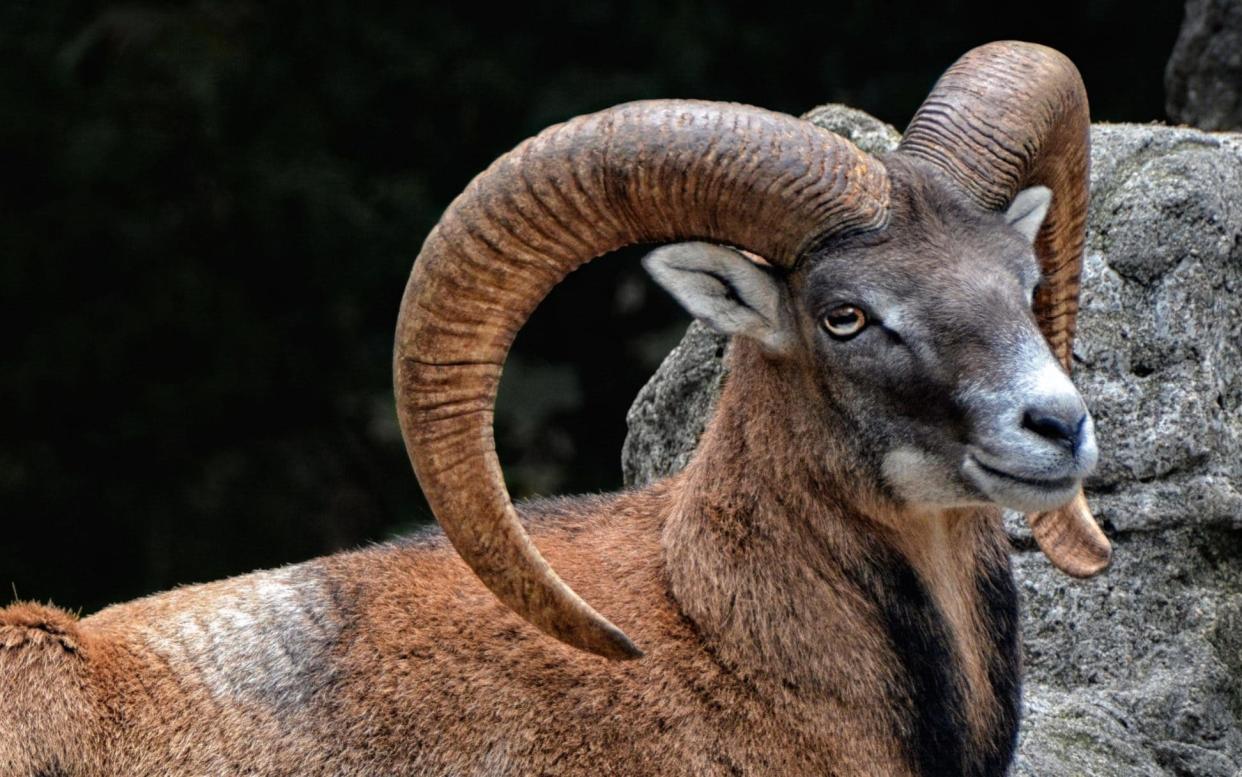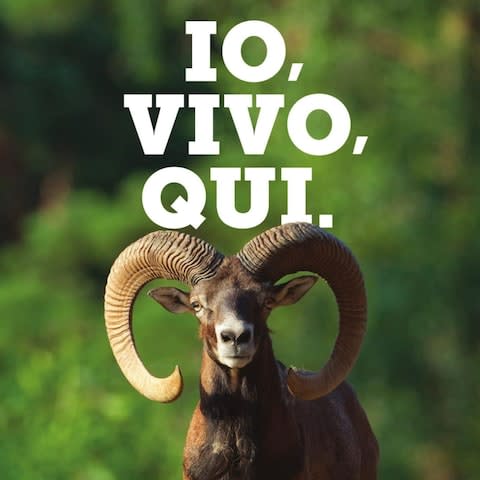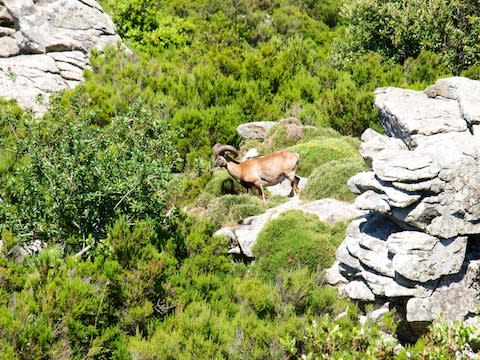Campaigners battle plan to eradicate mouflon wild sheep from Elba

Two hundred years after it was used as a place of exile for Napoleon Bonaparte, the Italian island of Elba is dealing with another unwelcome guest.
Mouflon – wild sheep which sport magnificently curved horns – were introduced to the island for hunting in the 1970s and in the absence of predators, such as wolves, have since thrived.
There are now around 500 of them and islanders say they not only damage Elba’s native woodland, but also venture down from the hills to feed on grape vines and carefully-tended gardens.
Plans are being drawn up to cull the entire population but the eradication programme is being fiercely opposed by animal rights groups.
Volunteers have been putting up posters and have handed out 6,000 leaflets to tourists, appealing for their support in blocking the cull.
“I live here,” the leaflets read, with a photograph of a male mouflon staring at the camera. “I was born here and I don’t bother anyone. There are 500 of us, all as meek and gentle as me. But they want to kill us all.”

Italy's Anti-Vivisection League (LAV), an animal rights organisation, claims that the damage that the mouflon do to gardens and agricultural areas is “not significant”.
The group says the wild sheep, which are native to Sardinia and Corsica, have now become a valuable tourist attraction and has written to the environment minister, Sergio Costa, calling for the cull to be blocked.
“This mass extermination is not acceptable,” LAV’s Massimo Vitturi told The Telegraph.
If the population has to be reduced, then it should be done with “non-lethal methods”.
The mouflon should be captured in traps, sterilised and then released back into the wild.
“The adults would no longer be able to breed and gradually the population would die out,” said Mr Vitturi.
But experts say that capturing the agile mountain sheep is easier said than done.
“Mouflon are hard to trap and it’s a very expensive exercise,” said Dr Francesca Giannini, a biologist with the national park authority that administers much of Elba.
The mouflon do immense damage to Elba’s woodland, especially its holm oaks.

“The number of mouflon is just not compatible with our native vegetation. In the areas they inhabit, we’ve found there are up to eight times fewer young trees, so the forest cannot regenerate,” she said.
“Apart from the damage they do, they also cause road accidents. If you are on a motorbike and you hit an adult mouflon, you risk losing your life.”
The national park authority has collaborated with a government scientific body to draw up plans for the cull.
“Mouflon and other feral sheep have a severe impact on biodiversity, in particular in island ecosystems,” the Institute for Environmental Protection and Research said in a report.
“Islands are particularly vulnerable to the effects of browsing and trampling, which can cause serious damage to natural habitats and contribute to soil erosion.”
Hunters have shot hundreds of mouflon for sport over the years, but the big push to eradicate the species for good is due to start in October, once the tourist season on the holiday island is over.
A mixed team of volunteer marksmen and police from Livorno on the mainland of Tuscany will take to the hills to hunt down the mouflon.
“The mouflon is an alien species that was deliberately introduced by man,” said Giampiero Sammuri, the president of the Tuscan Archipelago National Park, which includes Elba.
“Alien species are the second biggest cause of loss of biodiversity in the world, after destruction of habitat.”
By destroying habitat, the mouflon risk causing the extinction of flowers, insects and birds on Elba, he said.
“None of us in the national park administration take pleasure that the animals will be killed and everything possible will be done to avoid unnecessary suffering.”
But animal rights activists have vowed to keep fighting. “We’re going to keep up the pressure on the park authorities,” said Mr Vitturi of LAV. “There is a clear alternative to slaughtering them all.”

